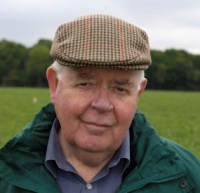National Trust’s plan is imaginative and brave

Fifteen months ago in one of these columns I deplored the public’s lack of knowledge about food.
The extent of this among some sectors of the community had been exposed by responses to an HGCA survey commissioned in association with its breakfast initiative. Of those questioned, 26% thought bacon came from sheep; 29% believed oats grew on trees; and 17% thought eggs were an ingredient of bread.
I concluded that it was a paradox when we live in an age that knows, or has access to, almost any information we need via the internet that many still live in blissful ignorance of the most basic things in life.
Apparently someone at the National Trust (which claims to be Britain’s biggest farmer with 250,000ha under management) agreed and took up the challenge to do something about it.
Using ideas developed by the various social networks on the internet, they have come up with an initiative to involve 10,000 people in decision-making on a real farm. Sounds crazy? I thought so, too, when I first heard about it, but the more I learned the more I warmed to it.
The real farm in question (which for the purposes of the internet exercise will be called MyFarm) is NT’s estate at Wimpole Hall in Cambridgeshire. It runs to 485ha and is partly through organic conversion. I have reservations about that aspect of the plan and think it would have been more realistic if the farm was conventionally managed – like 98% of the rest of Britain. Then again, participants will discover for themselves how unit costs mount when yields are low. Let’s leave that for the moment and concentrate on how it’s expected the scheme will work.
Each month the farm manager, Richard Morris, will pose a policy question on crops, livestock or wider impacts. He will summarise the implications of the options open to him in terms of profitability, management, the environment and so on and then invite the signed up members to vote on what he should do. If Mr Morris disagrees with the majority he will be able to argue the point online, but in the end he must do what his huge committee decides.
The objective is to make a profit, but if the decisions made by the 10,000 members of the scheme make that impossible this will be spelled out, so they will understand the dilemmas proper farmers face all the time and, perhaps, modify their approach for the future.
People who want to “play” the MyFarm “game” will be expected to pay an entry fee of £30, in return for which they will receive regular details of what’s happening on the farm, be entitled to vote and be offered free entry with their family to the estate. I wondered how the NT intended to find 10,000 people to participate, but was told they were confident there would be a lively demand.
Richard Morris said he was excited by the initiative and looking forward to it being launched shortly. I told him I thought he was a brave man and wished him luck. And I meant it. For if the initiative works it will educate a whole new audience on the realities of farming – on living with price volatility for inputs and outputs, on variable weather and the effect on yield and quality when there is too much or too little rain, and the implications of sickness and disease on livestock.
Learn more about MyFarm and perhaps join the project.
David Richardson farms about 400ha (1000 acres) of arable land near Norwich in Norfolk in partnership with his wife, Lorna. His son, Rob, is farm manager.
Read more from David and the other Farmers Weekly columnists.
